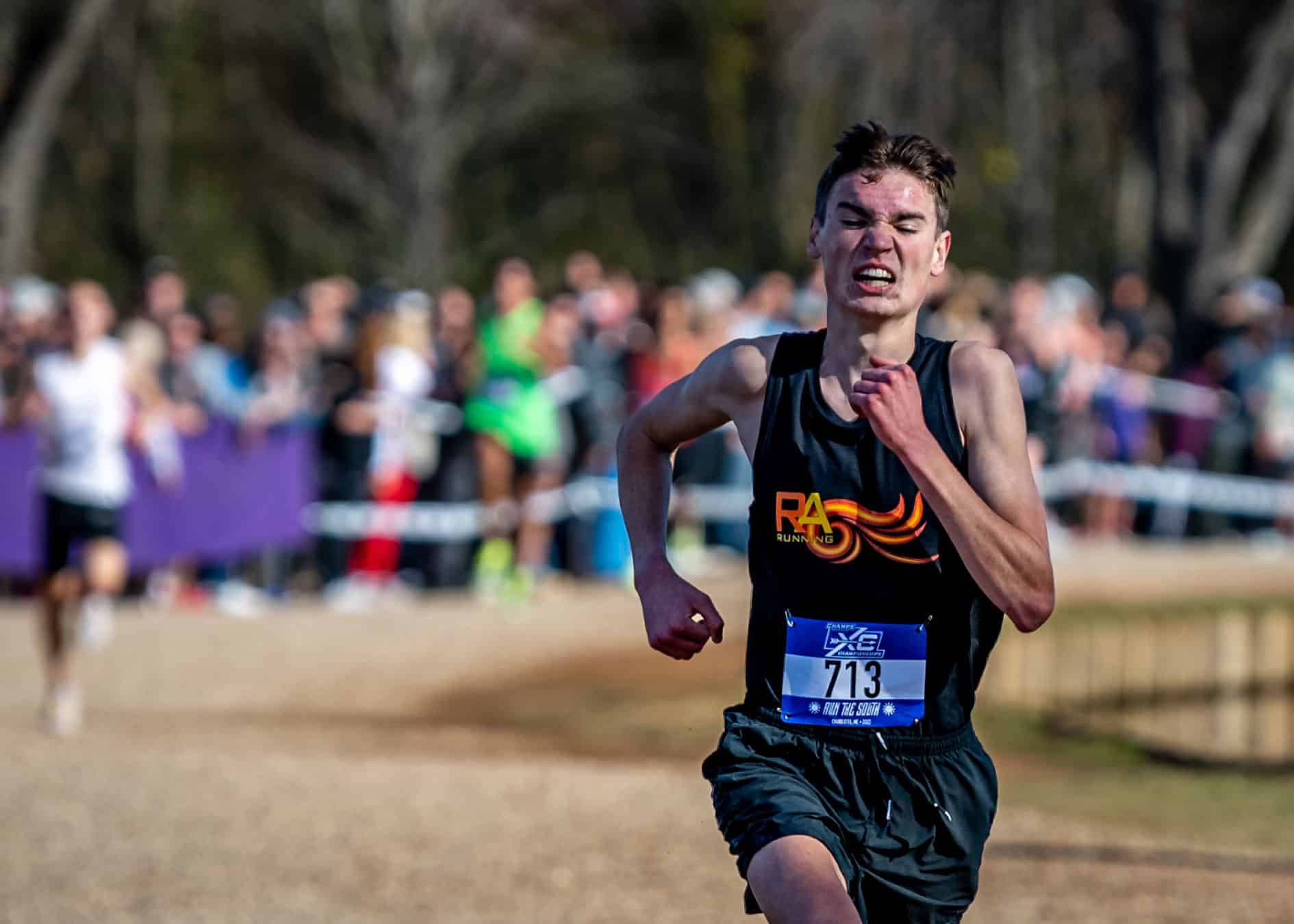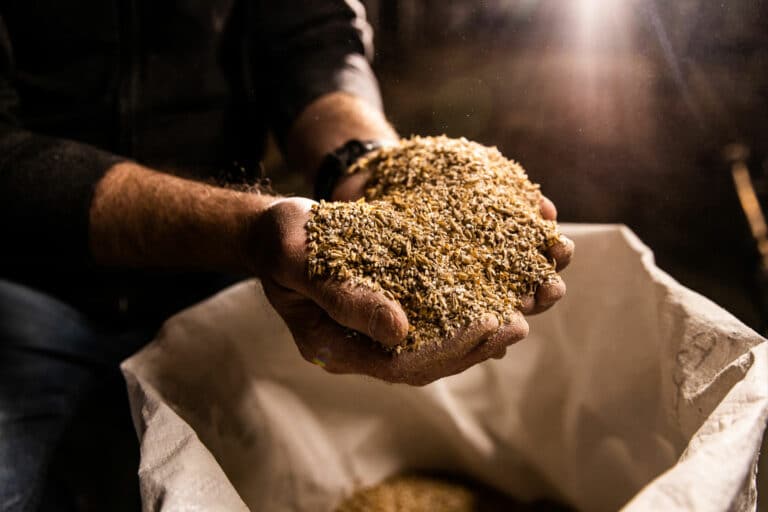Rocky Top
Only 25 high school runners have ever run a sub-four-minute mile. Rocky Hansen is one of them. In April, the 18-year-old from Asheville, N.C., clocked a 3:59.56.
Hansen is an eight-time state championship runner for Christ School, where he was coached by former Olympic Trials marathoner Randy Ashley, and he’ll be running for Wake Forest University this fall.
Hansen leaves everything on the track when he runs. He is a gritty, no-excuse runner—even though he’s faced plenty of obstacles that could have slowed him down. During his pursuit of state championships and a sub-four mile, he’s suffered stress fractures and been sidelined by iron deficiencies. With every hurdle he has overcome, Rocky has always found a way to stay positive and think about the people who inspire him.
Blue Ridge Outdoors talked to Hansen soon after his state championship performance. He shared his secrets on training, mental preparation, and what pushes him through the final lap.
BRO: How did you get started running?
RH: I played soccer as a kid. I played defense, and my team’s offense wasn’t great, so I ended up covering a lot of ground. I realized that I might be pretty good at this running thing, so I started racing, and just stuck with it.
BRO: Why do you like running?
RH: I like to push myself.Running is a unique sport. If you work hard, you see results. I love the feeling at the end of a hard race or workout, when you know you have emptied yourself and given everything.
BRO: How do you balance school and sports?
RH: I treat my academics as seriously as my running. I bring the same intensity. At my core, I identify as a hard worker—not just in running, but in everything I do.
BRO: How have you handled the pressure of being a champion year after year?
RH: I stick to routines and focus on my running, and that keeps me grounded. I also stay away from social media.
BRO: What is your pre-race routine like?
RH: The night before a race, I will do some yoga, maybe roll out my legs, and go to bed early. On the day of the race, I’ll take a cold shower and then do some breathing sessions. The breathing helps me get the blood flowing and get control of what’s going on inside. I’ll eat an energy bar about an hour before the race. Then I’ll warm-up, do some strides, and get mentally and physically ready to race.
BRO: Do any races across your high school career stand out as especially memorable?
RH: At last year’s Carolina Distance Carnival, I had been sidelined by iron deficiency for several weeks earlier that season, but I was fit and knew that I could do something. I was running the mile, and the race went out fast. I hung onto the leader for the first three laps and didn’t let him get any gap. With one lap to go, it was just two of us, and with 200 meters left, I gave everything. I crossed the line in my best time ever. What made the race extra special was that all my teammates ran personal bests that night, too.
BRO: What do you think about in the final lap of a race?
RH: In my last state championship race, in that last lap, I thought about all the people who had molded me and helped me get to where I was: my parents, Coach Ashley, my teammates, friends—all the energy that people had put into me, I felt it. In those moments of, ‘Man, this really hurts,’ thinking about those people propels me.
BRO: Have you had any significant setbacks?
RH: Setbacks are inevitable. Progression isn’t always a straight line. COVID pretty much wiped out my freshman year. I suffered a stress fracture the next year. I learned a lot from that injury, like how to push when the future is unknown. I trained on the bike and kept working to improve despite being in an ambiguous situation.
And twice in the past two years, I’ve had iron deficiency issues that set me back. Each injury or setback, I asked, ‘what can I learn from this?’ And the big lessons I have learned are to trust my training, not overthink things, and control the controllables.
BRO: What goals do you have from here?
RH: I hope to maybe win an NCAA championship at Wake Forest. Beyond that, I’d love to be a professional runner, maybe make the Olympics one day.
BRO: What advice do you have for aspiring runners?
RH: Train hard—but also train smart. Gradually increase your mileage and build a strong foundation. Work hard with what you’ve got. And keep running fun. Don’t think too much or worry too much. Be present and let running be running.
BRO: What makes running special to you?
RH: I really admire the community around running. It’s a welcoming sport. It’s open to everyone. Running teaches you a lot. And pushing through discomfort is something that we all have to do in life.
Ask the Coach
Randy Ashley is a two-time Olympic Trials Marathon qualifier and one of the country’s most successful and accomplished running coaches. But he is most proud of the relationships he has built with his runners. “They become like family,” he says.
“There are a lot of good coaches out there,” adds Hansen. “What distinguishes a great coach is the ability to develop relationships with athletes. I’ve always felt that Coach Ashley cares about me as a whole person, and not just as a runner.”
Coach Ashley offers these suggestions for helping runners reach their best:
Make it personal: I individualize training sessions to each runner. I meet runners where they are and raise them up a little bit each day.
Run together: Even if they have individualized workouts, my runners are training together. They are feeding off the collective energy to get the work done.
Read the room: Before practice begins, I scan my runners’ faces and read their body language. I recognize cues and respond on the fly. I can tell when someone had a bad day or is struggling with something.
Dream big: I encourage runners to set goals and go after them. Don’t stare at the sun too much, but goals give you something to grab onto. They feed the fire.
Understand your purpose: I am here to help these runners become the best runners and the best humans they can be. I measure success by the relationships I build.
Cover photo: Photo by Dan Loughlin








